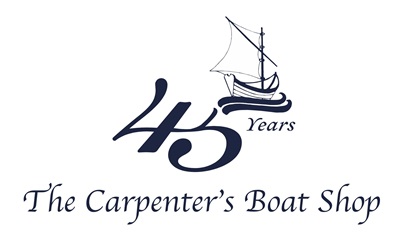Apprenticeship FAQ's
Test - Do not Enter anything here. +
Is the Boat Shop a boat-building school? +
While we offer opportunities to learn about boatbuilding, our mission goes beyond simply teaching technical skills. We’re primarily a space for growth and learning, where motivated apprentices can gain hands-on experience building small wooden boats and develop a range of other valuable skills. However, boatbuilding serves as a key vehicle for our deeper work—fostering greater understanding and compassion for ourselves and others.
In addition to building boats, apprentices participate in community work like cooking, cleaning, and maintaining our campus, reinforcing the values of collaboration and shared responsibility. The depth of learning and growth depends on the effort and engagement each apprentice brings to the experience.
Is it a job? +
Is the Boat Shop an intentional community? +
What are the expectations of apprentices? +
What does it cost to apprentice at the Boat Shop? +
Could I hold down a part-time job while I am an apprentice? +
What are the boating opportunities? +
What kind of boats does the shop work on? +
What are the living arrangements like? +
Do I have to live on campus to be an apprentice? +
May I bring my pet with me? +
Are dietary restrictions accommodated in meal planning? +
May I use the shop for personal projects after work hours? +
What other tasks will be required of me while at the Boat Shop? +
What does a typical day at the boatshop look like? +
On a typical day, apprentices spend most of the work day in the workshop building Monhegan Skiffs. There are breaks in our daily schedule for tea time, lunchtime, chore time, and a weekly community meeting. The day ends at 4:30 and dinner is at 5:30. Apprentices take part in a rotation to spend time working in the kitchen and in the restoration shop. On any given day, one apprentice will be assigned to work in the kitchen and one or several apprentices may be assigned to work on restoration projects or campus projects.
Are guests welcome? +
Yes, apprentices are allowed to invite visitors for short stays at the boatshop campus. Apprentices must provide advance notice to the Apprenticeship Program Director about guests. We ask that visitor stays on campus be limited to weekends. There are several spaces on campus, including the barn chapel and spare rooms in the white farmhouse, available for visitor stays on a first-come first-serve basis. Afterwards, apprentices help prepare for future guests by changing the linens and restocking firewood if necessary.
Do I need experience? +
Can I take time off? +
Can I bring a vehicle/Do I need a vehicle? +
The Boat Shop is located in rural Pemaquid, Maine, where a vehicle isn’t strictly necessary but can be incredibly helpful. Having one makes it much easier to explore and enjoy all that the beautiful peninsula has to offer. Parking onsite is available and bicycles are also welcome.
Where is the nearest airport? +
The nearest major airport is located about 1.5 hours away in Portland, Maine (Portland International Jetport). A smaller airport, Knox County Regional Airport is located in Owls Head, Maine offering CapeAir flights and is about an hour away.
What do I bring? +
Artist in Residence FAQ's
Test - Do not Enter anything here. +
How are artists selected? +
What will the creative working space look like? +
Where do artist live? +
Will I have access to the workshops? +
Is there a cost associated with the residency? +
How does one cook/eat? +
How long are the residencies? +
What is expected of the artist? +
Will I be welcome to participate in the Boat Shop community? +
Do I need a vehicle? +
Can I bring my pet? +
Is there wifi? +
What do I need to bring? What is provided? +
Where is the closest town? +
Where is the nearest airport? +
The nearest major airport is located about 1.5 hours away in Portland, Maine (Portland International Jetport). A smaller airport, Knox County Regional Airport is located in Owls Head, Maine offering CapeAir flights and is about an hour away.
